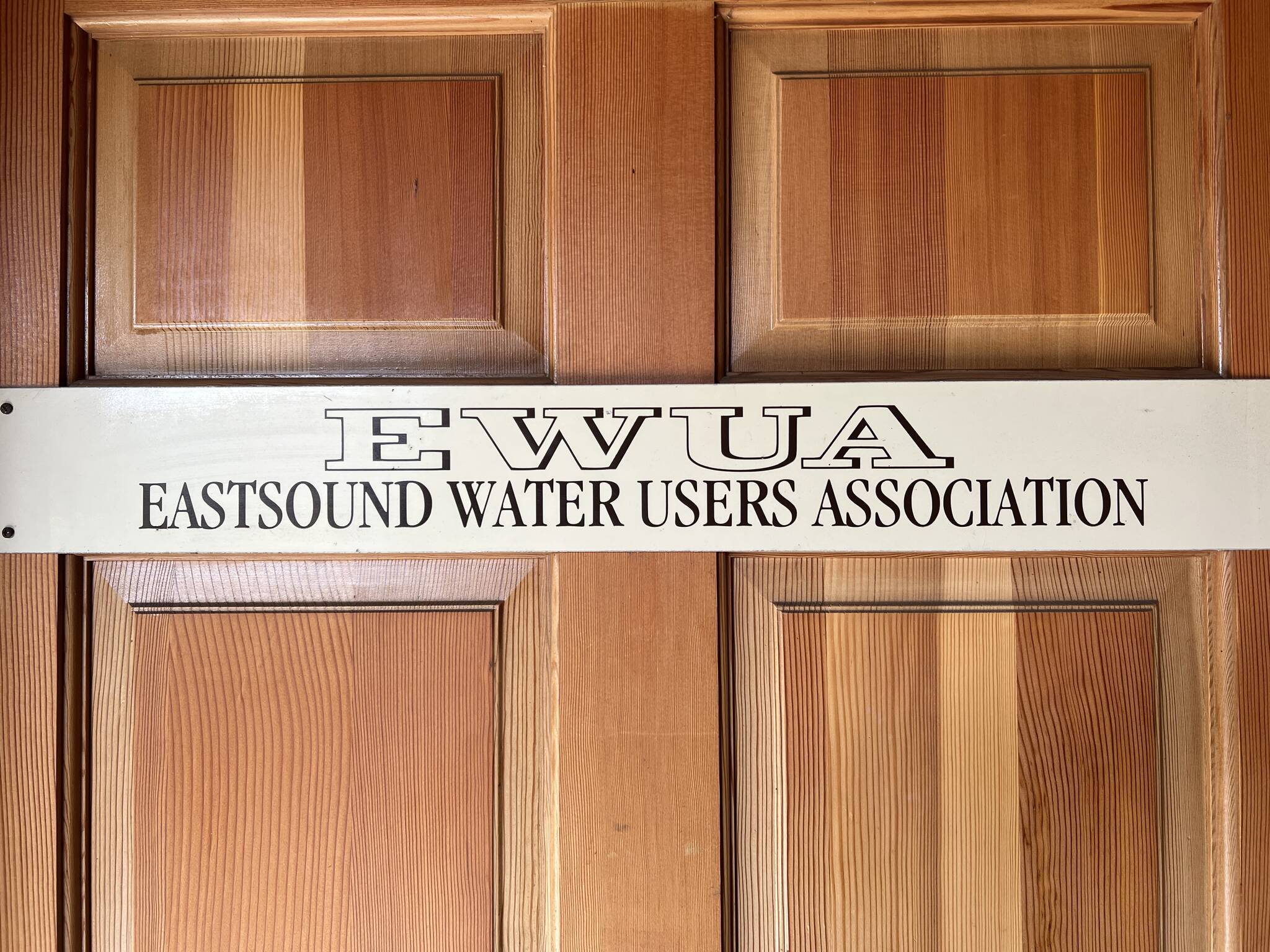by Toby Cooper
Sounder contributor
Eastsound residents — wanting nothing more than clean water from the faucet — are being dragged into another internecine dispute. The outcome could be critical to their water supply.
The first sign of trouble arrived in email form, popping into Eastsound inboxes on a Monday evening in late August. The source of the email, “Recallwater.com,” flashed “Financial Cover-up at Eastsound Water Users Association.”
Recallwater.com’s principals, Steve Smith and Tenar Hall, are both former officers and directors of EWUA. Smith served as Chair from 2020 until his forced removal on June 21, 2023, pursuant to a negotiated settlement. Hall joined the Board in July 2021 and resigned voluntarily in March of this year.
It appears to be a war over water. Or is this about money? Or accountability? Perhaps all three? However, a closer examination reveals that this war, like most wars in human history, may be about land.
Land, yes, and voting control of Eastsound’s water utility.
Eastsound Water Users Association is a private, non-profit association owned by its members. It has agreements with San Juan County and the Washington State Department of Health to be the primary water purveyor in its Eastsound service area.
Management at EWUA told the Sounder that they believe Smith’s problems with the organization began when the board rejected his land purchase proposal.
While Smith was President of EWUA, he produced a prospectus for a project named Water House. To be completed, the EWUA would provide land — a small parcel near the intersection of North Beach and Mt. Baker Road used for EWUA employee housing.
According to the prospectus, EWUA would “contribute” to Water House its option to purchase an adjacent parcel for sale by Rick Christmas to create a 1.7-acre parcel for Water House. The value of the Christmas parcel was $550,000, according to the August 2022, contract.
The Water House proposal called for 20 units and 1 ADU for a total of 21 units on the 1.7-acre parcel.
All EWUA Board members were invited to join a subsidiary Water House board in a fee-based partnership to manage the property. Outside investors would fund construction of the 21 high-density, three-story units for a total project cost of $9,653,440. Smith was not listed in the prospectus as a financial contributor. Water House would be due a $900,000 commission, according to the prospectus.
After analysis and debate, the EWUA Board voted against the Water House project on the grounds that it carried unacceptable risk.
Recallwater.com’s August mailing to all EWUA voting members was a digital gateway to a bulging set of documents: an open letter to members, a “forensic analysis,” Calendar of Events, and more. It contained a sprawling array of accusations against General Manager Dan Burke and five of the six current directors. Recallwater.com is resolutely calling for members to vote them off the Board. They describe an organization in disarray, failing in its “fiduciary duties … through its gross negligence and potential complicity in actions that caused financial harm to the members.”
In response, the Board addressed all charges, citing “numerous false and misleading accusations” and accepting responsibility for “any real shortcomings in governance that were made on our watch.” They announced an array of improved financial and procedural controls that were approved by the board in early September.
But Smith is pursuing the full recall. If he succeeds, the EWUA will be left without the ability to assemble a quorum for conducting business, including the need to name new directors to rebuild. Smith states, through his lawyer, his intent to self-assemble the board one member at a time, with candidates who meet his criteria.
Last April the EWUA board hired Acuity Forensics, a financial consultancy, to prepare a “forensic investigation” which ultimately produced 12 recommendations for improving the organization’s financial controls and found no cause for alarm.
The report’s author, Tiffany R. Couch, concluded that installing “proper internal controls should be seen as a mechanism to keep employees safe in their jobs, and to ensure the safety of EWUA’s funds, not a message of mistrust or punishment to any employee.”
What’s next
While Smith was president in 2020, the board passed a resolution that set the standard for initiating a recall of board directors to 3 percent (currently 39 signatures) of the membership.
Upon receipt of that petition, the board must hold a special meeting within 35 days to consider the recall action. Removal of a director from the board then requires a simple majority of the EWUA members present at the gathering, not of the total membership, with a minimum requirement of only 10 percent of voting members attending.
According to EWUA management, Recallwater.com has yet to garner the number of signatures needed to hold such a meeting.
OPAL Land Trust holds an EWUA membership on behalf of a portion of OPAL’s homeowners. Executive Director Lisa Byers said it was “premature” to consider the removal of directors and preferred “the hiring of an independent third party to oversee and report to members in the next few months on progress towards implementing the forensic accountant’s recommendations.”
She and other community members would like to see an audit to ensure compliance with Generally Accepted Accounting Procedures.



